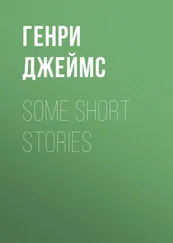“That sounds nice and plausible,” says I. “I’d like to know Mr Morgan.”
“It won’t hurt us a bit,” says Silver, “to get acquainted with a few finance kings. I kind of like the social way New York has with strangers.” The man Silver knew was named Klein. At three o’clock Klein brought his Wall Street friend to see us in Silver’s room. “Mr Morgan” looked some like his pictures, and he had a Turkish towel wrapped around his left foot, and he walked with a cane. “Mr Silver and Mr Pescud,” says Klein. “It sounds superfluous,” says he, “to mention the name of the greatest financial – ”
“Cut it out, Klein,” says Mr Morgan. “I’m glad to know you gents; I take great interest in the West. Klein tells me you’re from Little Rock. I think I’ve a railroad or two out there somewhere. If either of you guys would like to deal a hand or two of stud poker I – ”
“Now, Pierpont,” cuts in Klein, “you forget!”
“Excuse me, gents!” says Morgan; “since I’ve had the gout so bad I sometimes play a social game of cards at my house. Neither of you never knew One-eyed Peters, did you, while you was around Little Rock? He lived in Seattle, New Mexico.”
Before we could answer, Mr Morgan hammers on the floor with his can and begins to walk up and down, swearing in a loud tone of voice. “They have been pounding your stocks to-day on the Street, Pierpont?” asks Klein, smiling.
“Stocks! No!” roars Mr Morgan. “It’s that picture I sent an agent to Europe to buy. I just thought about it. He cabled me to-day that it ain’t to be found in all Italy. I’d pay $50,000 to-morrow for that picture – yes, $75,000. I give the agent à la carte [35]in purchasing it. I cannot understand why the art galleries will allow a da Vincy to – ”
“Why, Mr Morgan,” says Klein; “I thought you owned all of the da Vincy paintings.”
“What is the picture like, Mr Morgan?” asks Silver. “It must be as big as the side of the Flatiron Building.”
“I’m afraid your art education is on the bum, Mr Silver,” says Morgan. “The picture is 27 inches by 42; and it is called Love’s Idle Hour . It represents a number of cloak models doing the two-step on the bank of a purple river. The cablegram said it might have been brought to this country. My collection will never be complete without that picture. Well, so long, gents; us financiers must keep early hours.”
Mr Morgan and Klein went away together in a cab. Me and Silver talked about how simple and unsuspecting great people was; and Silver said what a shame it would be to try to rob a man like Mr Morgan; and I said I thought it would be rather imprudent, myself. Klein proposes a stroll after dinner; and me and him and Silver walks down toward Seventh Avenue to see the sights. Klein sees a pair of cuff links that instigate his admiration in a pawnshop window, and we all go in while he buys’em. After we got back to the hotel and Klein had gone, Silver jumps at me and waves his hands.
“Did you see it?” says he. “Did you see it, Billy?”
“What?” I asks.
“Why, that picture that Morgan wants. It’s hanging in that pawnshop, behind the desk. I didn’t say anything because Klein was there. It’s the article sure as you live. The girls are as natural as paint can make them, all measuring 36 and 25 and 42 skirts, if they had any skirts, and they’re doing a buck-and-wing on the bank of a river with the blues. What did Mr Morgan say he’d give for it? Oh, don’t make me tell you. They can’t know what it is in that pawnshop.”
When the pawnshop opened the next morning me and Silver was standing there as anxious as if we wanted to soak our Sunday suit to buy a drink. We sauntered inside, and began to look at watch-chains.
“That’s a violent specimen of a chromo you’ve got up there,” remarked Silver, casual, to the pawnbroker. “But I kind of enthuse over the girl with the shoulderblades and red bunting. Would an offer of $2.25 for it cause you to knock over any fragile articles of your stock in hurrying it off the nail?”
The pawnbroker smiles and goes on showing us plate watch-chains.
“That picture,” says he, “was pledged a year ago by an Italian gentleman. I loaned him $500 on it. It is called Love’s Idle Hour , and it is by Leonardo da Vincy. Two days ago the legal time expired, and it became an unredeemed pledge. Here is a style of chain that is worn a great deal now.”
At the end of half an hour me and Silver paid the pawnbroker $2,000 and walked out with the picture. Silver got into a cab with it and started for Morgan’s office. I goes to the hotel and waits for him. In two hours Silver comes back.
“Did you see Mr Morgan?” I asks. “How much did he pay you for it?”
Silver sits down and fools with a tassel on the table cover.
“I never exactly saw Mr Morgan,” he says, “because Mr Morgan’s been in Europe for a month. But what’s worrying me, Billy, is this: The department stores have all got that same picture on sale, framed, for $3.48. And they charge $3.50 for the frame alone – that’s what I can’t understand.”
Justice-of-the-peace Benaja Widdup sat in the door of his office smoking his elder-stem pipe. Half-way to the zenith the Cumberland range rose blue-gray in the afternoon haze. A speckled hen swaggered down the main street of the “settlement,” cackling foolishly.
Up the road came a sound of creaking axles, and then a slow cloud of dust, and then a bull-cart bearing Ransie Bilbro and his wife. The cart stopped at the Justice’s door, and the two climbed down. Ransie was a narrow six feet of sallow brown skin and yellow hair. The imperturbability of the mountains hung upon him like a suit of armour. The woman was calicoed, angled, snuff-brushed, and weary with unknown desires. Through it all gleamed a faint protest of cheated youth unconscious of its loss.
The Justice of the Peace slipped his feet into his shoes, for the sake of dignity, and moved to let them enter.
“We-all,” said the woman, in a voice like the wind blowing through pine boughs, “wants a divo’ce.” She looked at Ransie to see if he noted any flaw or ambiguity or evasion or partiality or self-partisanship in her statement of their business.
“A divo’ce,” repeated Ransie, with a solemn nod. “We – all can’t git along together nohow. It’s lonesome enough fur to live in the mount’ins when a man and a woman keers fur one another. But when she’s a-spittin’ like a wildcat or a-sullenin’ like a hoot-owl in the cabin, a man ain’t got no call to live with her.”
“When he’s a no-’count varmint,” said the woman, “without any especial warmth, a-traipsin’ along of scalawags and moonshiners and a-layin’ on his back pizen ’ith co’n whiskey, and a-pesterin’ folks with a pack o’ hungry, triflin’ houn’s to feed!”
“When she keeps a-throwin’ skillet lids,” came Ransie’s antiphony, “and slings b’ilin’ water on the best coon-dog in the Cumberlands, and sets herself agin’ cookin’ a man’s victuals, and keeps him awake o’ nights accusin’ him of a sight of doin’s!”
“When he’s al’ays a-fightin’ the revenues, and gits a hard name in the mount’ins fur a mean man, who’s gwine to be able fur to sleep o’ nights?”
The Justice of the Peace stirred deliberately to his duties. He placed his one chair and a wooden stool for his petitioners. He opened his book of statutes on the table and scanned the index. Presently he wiped his spectacles and shifted his inkstand.
“The law and the statutes,” said he, “air silent on the subjeck of divo’ce as fur as the jurisdiction of this co’t air concerned. But, accordin’ to equity and the Constitution and the golden rule, it’s a bad barg’in that can’t run both ways. If a justice of the peace can marry a couple, it’s plain that he is bound to be able to divo’ce ’em. This here office will issue a decree of divo’ce and abide by the decision of the Supreme Co’t to hold it good.”
Читать дальше
Конец ознакомительного отрывка
Купить книгу












